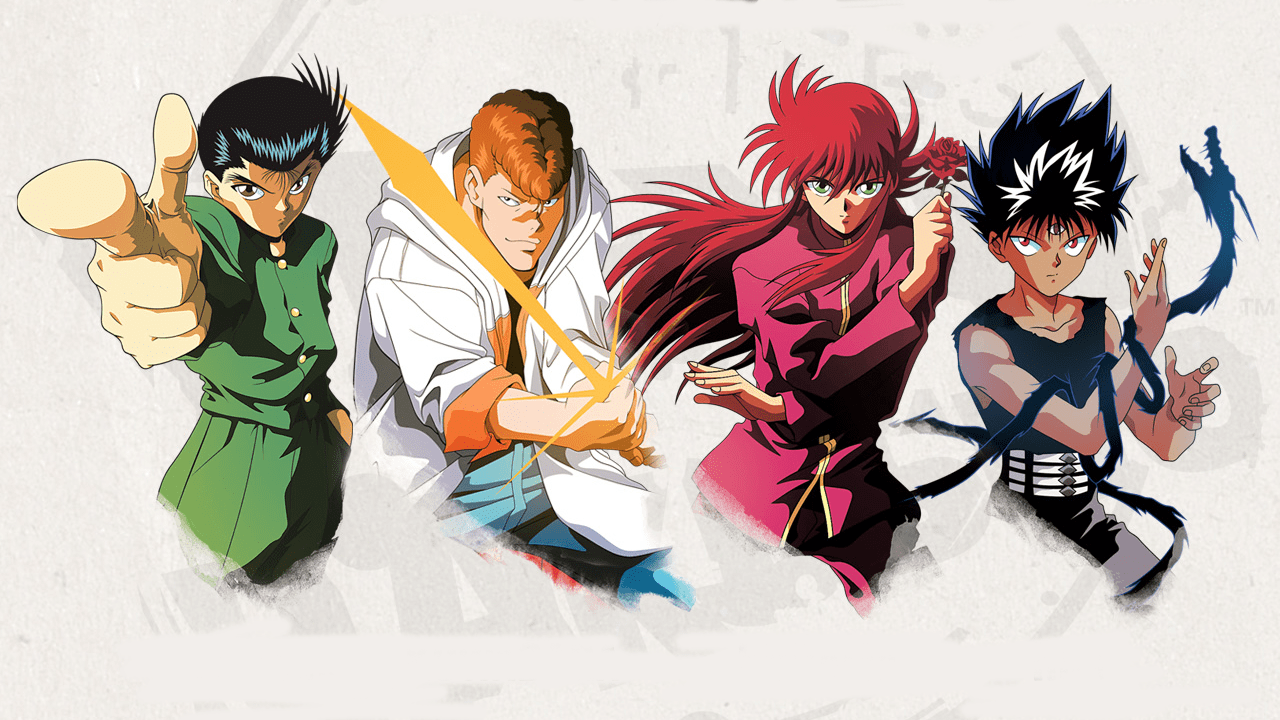I suppose I should open this review with a disclaimer that I am a fan of the Deus Ex Franchise, and have been since the first game. This isn't a contrived statement meant to bolster my geek cred, it's simply to establish that I probably went into this game expecting to enjoy it.
Which I did.
Immensely.
One of the first things I noticed about the game when dropped into its prologue level was just how familiar it felt. We are, of course, still playing as Sir Adam "Growly" Jensen, a protagonist so highly modified he might as well be a Honda Civic, and he's off on a super-secret mission to stop some people in Dubai from getting up to some bullshit. It does the standard 're-familiarize the audience with gameplay in the first level' routine that's always welcome, until we reach the end of the mission, all hell breaks loose, and we have our inciting incident. And after that terrorist attack, followed by the opening credits, we're greeted with another terrorist attack. For this is Deus Ex, and there are always terrorist attacks.
What I was actually talking about, however, in terms of familiarity, was the control scheme and general feel of the game. It felt like a sequel should; based on the original's overall design and concept, but stepped up in almost every way. I realize there's a huge "BUT" hiding there, and we'll get to it, but first I'd like to let you know what you're getting.
As I said before, the control scheme feels very much like Deus Ex: Human Revolution, but with a few well-placed tweaks to make it feel more fluid. The quick-access inventory and augmentation menus are a welcome addition, as well as the return of mantling, which was inexplicably left out of Human Revolution, despite its inclusion in Invisibl-ahem... I mean, "The game that shall not be named". The cover system, which was functional enough in Human Revolution, has been slightly tweaked to be more conducive to stealth play (adding an indicator of where you'll end up when breaking from cover, eliminating the guesswork and allowing you to focus on timing your movements. With the fluidity that it lends to the experience, I felt much more confident that the mistakes I would inevitably make (and there were quite a few) would be my own doing, and not the fault of the game. There are still a few annoyances to be found among the improvements, of course. The cover-based shooting is an absolute chore when using any weapon without a scope (which Adam will use when aiming from cover) or laser sight (which provides an aimpoint). I know this seems nitpicky, but it's an entirely unnecessary frustration when a) we can clearly see Adam aiming down his sights when he peeks out from cover, b) the game has no issue letting you use your magnifying optics when aiming from cover, and c) it forces you to do a quick mental checklist of which weapons you're carrying, and which are equipped with a damn laser sight. I'm not an augmented superhuman, and I can aim down a paintball marker when I peek from cover, why doesn't the game allow us to peek into iron sights?
The second glaring control issue has more to do with the HUD actively fucking with my immersion. I don't mean that in a Boderlands-ey "Golly me, there's an awful lot of shit on the screen, how the hell am I meant to SEE?" kind of way, but more of in an "This HUD is actually interfering with my ability to play this damned game, and if these damn prompts don't disappear, I'm going to beat the designers with a Steam Controller." kind of way. We have the kind of problem that could have been solved with some very minor tweaks. Specifically, the overuse of the 'Use' Button assignment, and bad prioritizing by the game's systems. I'm only half joking when I say you're going to spend a majority of the game holding the 'Use' key. Available Praxis? Hold 'E' to go to the Praxis menu. Available Crafting Parts? Hold 'E' to go to the crafting menu. Objective update? Hold 'E' to view the mission entry. Picked up a pocket Secretary? Hold 'E' to view the text. New Story Item? Hold 'E' to view. And what's worst... need to drag a body? You guessed it. Hold 'E' to drag. The clever people reading this have probably figured out where I'm going with this, but this problem came to a head during a mission where I was tasked with discreetly picking off guards in a crowded area, one by one. Each one I took down updated the mission status, dropped a Pocket Secretary, gave me experience for taking them out, and the target one dropped a Story Item. All of this while I'm trying to quickly hide bodies so I don't blow my cover. So, when I tell you that I earned a Praxis Kit when I took down a guard that had a Pocket Secretary, and so was forced to flip though menu after menu, trying to get all of the HUD prompts to disappear (some of which don't immediately disappear when you access them, either, forcing you to wait), you'll understand my frustration. Luckily, I did discover that if you're positioned to drag a body when you hold 'Use', and a HUD prompt takes you to a menu, you will be dragging the body when you exit the menu. So, while that did eventually lessen the blow when I figured it out, it's still annoying to have to pop in and pop out of a menu to do a task that will occasionally require that you pull it off before a camera swings back your way, or the guard's buddy turns around to catch you dragging his friend behind a filing cabinet with a guilty look on your face, and you slowly reach for the 'Escape' button to reload your latest autosave. My point is that it seems like such a small issue, but in my opinion, the GUI should never interfere with your ability to stay on-task in a game. Otherwise you're damaging the player's immersion. Why couldn't the game have you press and hold the 'Menu' button to quickly access new additions to the Menu?
The Systems in the game get my all-around stamp of approval. the Stealth mechanics have been polished to a mirror shine, with clear indicators of whether or not you're about to be spotted, vision cones that give patrolling units credit for possessing peripheral vision, an adequate but not overly generous delay between being alerted and altering others, and new ways to make your way around security systems, by way of EMP rounds and the new Remote Hacking augmentation, which temporarily disable electronics, if you're stuck in a situation where you can't figure out how to outmanuever such challenges. Boss Battles include new options for non-lethal combat or even a practically hands-off approach (if you can find the right terminals to hack), something we had to wait for Human Revolution's Director's Cut to see the last time around. A crafting system has been added (Because it's 2016 and EVERYTHING must have crafting now), but if that's not your speed, you can basically treat it as a slight re-jiggering of Human Revolution's "Weapon Upgrade" system, just taking up FAR less space in your inventory. You can use your crafting parts to create Multitools (The near-equvalent of the Automatic Unlocking Devices from Human Revolution), health stims, and battery packs in a pinch, but with those items being one-use consumables found both as hidden loot and buyable in most stores, the benefit of permanent weapon upgrades far outweighs the usefulness of the Recipes, and I think in my first play-through at "Give me Deus Ex/Hard" difficulty, I crafted exactly one Multitool to use on a safe I couldn't crack open near the end of a mission. Once.
The new Augmentations are a welcome bit of flavor, providing powerful new options at the one-to-one cost of permanently disabling one of your standard Augmentations. That bit of balance provided a welcome bit of temptation and consequence for what would otherwise be a set of near game-breaking quasi-superpowers. My personal favorite (as someone who prefers the stealth approach) was the Remote Hacking aug, which allowed Adam to toggle devices like Electronic Glass switches, cameras, and turrets on and off from a distance, often without breaking cover. Deus Ex is, and always has been, a game about options, and never once during my play-through did I feel like there was only a single approach to any situation I found myself in, which means that Mankind Divided delivered on what is, to me, the greatest selling point of a Deus Ex game.
The level design deserves special mention as a genuine star of the overall game, presenting unique challenges to players regardless of whether they choose to take the direct approach, or stealth, and rewarding creative thinking. With the right Augmentations activated, very little of any level is out of reach, which actively encourages players to consider multiple angles of approach to any situation, and choose the one that best matches their abilities, augmentations, and equipment loadout. Enemy placement is clever, and forces stealth-based characters to take extra caution and observe their surroundings before each calculated move, making each successful undetected infiltration satisfying in it own way. Secret compartments, hatches, and stashes add room-based puzzles for the observant, thorough player, including one hidden in my own damn apartment that I didn't find until my second play-though. The main hub, Prague, deserves recognition as well. The effects of the Augmented Apartheid feel well-delivered, and each detail of the slums felt oppressive and visceral. The world feels very much lived-in, with scripted sequences occurring at various intervals, making the world feel alive (if oppressive), and helping immersion. The first time I went to the metro to exit the slum area, I found myself waiting in a line that the game didn't actually force me to wait in at all. The situation was just so well-designed that I felt compelled to behave in-character.
Graphically, the game is absolutely stunning. I may have lost a few Frames Per Second by cranking the graphics up to Ultra, but it was hard to argue with the results. At my monitor's native 1080p resolution, the level of detail was breathtaking. Cutscene character animation may still stray into the Uncanny Valley, and look a bit stiff for how natural the cast of characters are rendered, but it was by no means a deal-breaker, and I found myself genuinely enjoying the various dialogues and "speech battles" that rewarded paying special attention to NPC's nonverbal communication.
The story is very much faithful to the general feel of the Deus Ex franchise, which is to say, everything is a conspiracy, everyone's a suspect, and you can count the characters you can trust on one hand. The plot and character decisions are filled with moral ambiguities, half-measures, and even occasionally doing the "wrong" thing for the "right" reasons. A lot of choices are merely implied, as well, such as whether or not to intervene in situations involving police brutality, extortion, the drug trade, or just the fact that getting to an area to accomplish a task, keep a promise, or make a choice would require putting yourself at significant risk (which has extra weight in the game's new "I didn't ask for this" difficulty, which adds Permadeath to the list of risks a character has to weigh). It does, however, seem to suffer from structuring issues, particularly at one point where the game kept waiting until I'd traversed across the entire map to activate the prompts to tie off the sidequests, each of which were located back where I'd started, forcing me to retrace my steps, tie off the side quest, then head back crosstown to pursue the main objective, which set off the next prompt right as I reached it, a process it repeated three times in a row, back to back, at which point I'd decided that either this game was deliberately fucking with me to see how many times it could get me to make a risky crosstown round-trip, or someone on the writing staff needed to be fired. I could see forcing me to double-back once, after all, it's not unrealistic that sometimes a can't-miss opportunity will present itself at the most inopportune moment, but the way it's implemented is either lazy or sadistic. While I like it when a game manipulates me in a clever way, I'd be hard-pressed to find a less creative way to pad out a particular section of a game than "why don't we just make them backtrack across the whole map three times like the world's stupidest relay race?" Still, this is just one particular glaring error in an otherwise brilliantly written game that manages weave a lot of interconnected webs of increasingly sinister plots without making it all feel messy and tangled.
The whole "Rogue Agent" angle to the plot blends in seamlessly with the main story, and ties in well with Adam's personal motivations, held over from the last game, as he's now on the tail of the Illuminati, and is leveraging his Interpol connections and skills to wage a one-man covert war against their conspiratorial activities. Balancing Jensen's genuine interests in investigating the two inciting incidents with his suspicions that the Agency he is investigating FOR is an Illuminati controlled shadow government operation is an interesting challenge that is sure to tickle spy drama fans, as well.
So far, all of the credit and blame associated with this product is squarely on Eidos Montreal, but as it is a Square Enix property, it comes with your usual boilerplate Square Enix bullshit. There's An extra game mode called Breach which basically takes the entire stealth action gameplay setup and turns it into a fast-paced, arcadey time trial that can't work out if it's a shooter or a platformer, and provides PLENTY of ways to sucker players into microtransactions. I played through the tutorial and several levels, and then, much like Adam Jensen, decided that "I didn't ask for this", and dropped it altogether. Plenty of the games journalists whose opinions I trust are bemoaning the inclusion of microtransactions in this full-priced AAA release, but inasmuch as it affects the actual Mankind Divided experience, I'm happy to say that I was, for all intents and purposes, completely unaffected in my playthrough. In my own opinion, resource management is a major part of what makes Deus Ex a challenging experience, forcing you to adapt your approach to situations based on the augmentations you have activated and the equipment in your loadout, but if someone wants to pay to ruin that for themselves, who am I to stop them? And while that certainly doesn't excuse a company known for its bullshit business practices including bullshit money-grabbing schemes in their games for bullshit reasons, I think that Eidos Montreal has delivered a solid experience that even Square Enix couldn't fuck up on delivery, God knows they tried... remember "Augment your Preorder"? *shiver*
Tl;Dr: Deus Ex: Mankind Divided is a beautiful, complex, well-designed, well-written entry into the Deus Ex franchise. It focuses its energies on maximizing player choice both in gameplay and story, and its execution makes it not only a worthy successor to Human Revolution, but likely will make it the new standard for stealth action games for years to come. Don't miss this one.















